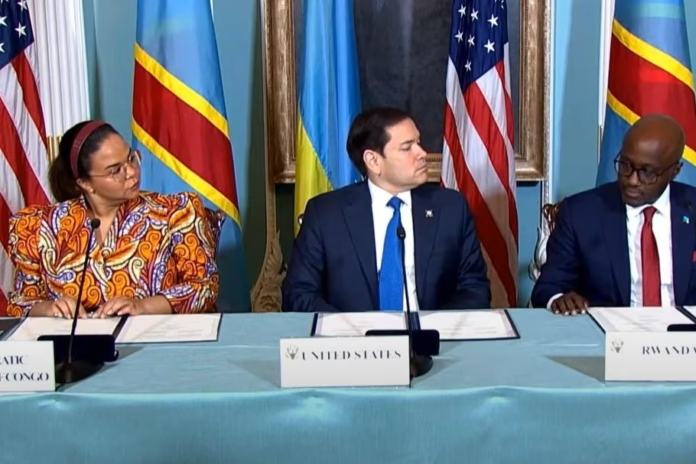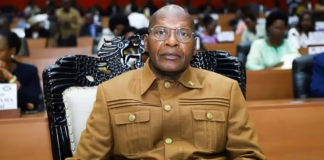Representatives from the Democratic Republic of Congo (DRC), Rwanda and the M23/AFC movement signed a joint declaration on April 23, 2025, committing to an immediate cessation of hostilities and the pursuit of a permanent ceasefire. The negotiations were facilitated by the State of Qatar and held recently in the United States.
The declaration, issued by the DRC delegation, states that both parties agreed to end the conflict through peaceful means. The agreement emphasizes an immediate halt to hostilities, the categorical rejection of hate speech and intimidation, and an appeal to local communities to respect the emerging peace initiatives.
Both sides pledged to engage in a constructive dialogue aimed at addressing the underlying causes of the conflict, particularly in the eastern provinces of the DRC. The statement also calls on religious leaders, civil society actors, and media organizations to help spread messages of peace.
The DRC representatives expressed sincere gratitude to Qatar for its efforts in facilitating the peace talks and for its continued commitment to fostering dialogue and mutual understanding.
The agreement was welcomed internationally. U.S. Secretary of State Marco Rubio stated on X (formerly Twitter) that the declaration “paves the way for peace, stability, and prosperity” in the region, while safeguarding “strategic interest in critical minerals to grow our tech sector.” Rwanda’s Minister of Foreign Affairs, Olivier Nduhungirehe, described the joint declaration as “an important — even decisive — step” toward achieving lasting peace in eastern Congo, provided that the commitments are implemented in good faith. He added that Rwanda remains engaged in other ongoing peace initiatives in the region.
The talks mediated by Qatar and held on U.S. soil come after multiple rounds of African-led negotiations have failed to bring a lasting solution to the conflict. In recent years, the East African Community (EAC) launched the Nairobi Process to bring together Congolese armed groups and government representatives. Despite multiple summits and dialogue sessions, the Nairobi Process struggled with delays and non-participation from key actors.
Simultaneously, the Southern African Development Community (SADC) has pursued regional efforts to stabilize the eastern DRC, including deploying security missions in support of the Congolese government. Angola, acting as a regional mediator, facilitated the Luanda Roadmap beginning in late 2022, focusing on de-escalating tensions between the DRC and Rwanda over accusations of mutual support for armed groups operating across their shared border.
While these African initiatives received backing from the African Union (AU) and the international community, implementation challenges, competing political interests, and recurring outbreaks of violence have limited their effectiveness.
The DRC-M23 declaration reaffirms the parties’ commitment to respecting the ceasefire and working collaboratively throughout the peace process. It highlights the importance of community engagement, urging religious leaders and the media to contribute to a climate of reconciliation.
The declaration also outlines an expectation that both parties will adhere to their commitments throughout the ongoing peace talks until their conclusion. It states that dialogue will address the root causes of the conflict and establish mechanisms to ensure durable peace in eastern Congo.
The conflict in eastern Congo has displaced millions of people over the past decade and has drawn in multiple regional actors, raising concerns about broader instability across the Great Lakes region. Armed groups, including the M23, have periodically advanced in eastern territories, leading to large-scale humanitarian crises and straining relations between neighboring countries.
While previous ceasefires have often collapsed, international actors have expressed cautious optimism about the latest agreement. Qatar’s involvement and the hosting of negotiations in the United States reflect a growing role for non-African actors in supporting peace efforts in the region.
Observers have noted that external facilitation may help provide neutral ground for dialogue but also underlines the challenges facing regional frameworks that have long advocated for “African solutions to African problems.” Despite strong political support, many African mediation efforts have struggled with resource constraints, a lack of enforcement mechanisms, and diverging national interests among member states.
The coming months are expected to test the resilience of the commitments made in the declaration. Further steps are anticipated, including follow-up meetings and technical discussions on disarmament, reintegration of combatants, and political reforms needed to sustain peace.
Both the DRC government, Rwanda and the M23/AFC representatives have urged continued support from local communities, regional stakeholders, and international partners to ensure the successful implementation of the agreement.



